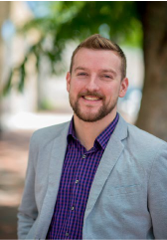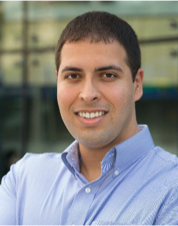
Rhythm and the Motor System: Post Stroke Gait Training Webinar
Recorded On: 09/10/2020
-
Register
- Non-member - $40
- PT Member - $30
Since a landmark study by Rossignol and Melville in 1979, there has been a surge of research demonstrating that the auditory and motor systems have a rich connectivity that promotes the synchronization or entrainment of the rhythmic signal and the motor response. This research has been translated into an intervention for gait training called Rhythmic Auditory Stimulation (RAS). There have been decades of clinical research demonstrating the effectiveness of RAS on specific diagnoses, including stroke. Outcomes include increased symmetry of muscle activation, diminished timing variability, and improved velocity and stride length. This presentation will discuss the neuro-mechanical foundation and practical applications of RAS in patients post stroke.
Learning Objectives:
Understand the biomechanics of rhythmic walking and implications for stroke gait
Describe the neuroscience of rhythm and basis for rhythmic auditory stimulation
Design RAS-based treatments in the hospital and clinic
Course Recorded September 2020

Brian Harris
MA, MT-BC, NMT/F
Brian Harris is the Co-Founder and CEO of MedRhythms; company focused on the intersection music, neuroscience and technology. Brian is a board-certified music therapist and one of 350 Neurologic Music Therapist Fellows in the world. Brian’s clinical work is focused at Spaulding Rehabilitation Hospital in Boston, USA where he created and implemented their first inpatient full time Neurologic Music Therapy program, specializing in Traumatic Brain Injury, Stroke, and neurologic disease and built this program to be the most comprehensive NMT program in the country. Brian is also the Chair of the Arts & Neuroscience group at the American Congress of Rehabilitation Medicine and sits on the Advisory Council of the Academy of Neurologic Music Therapy. He has been an invited speaker at venues throughout the world including: the American Academy of Neurosurgeons, Harvard Medical School, the American Congress of Rehabilitation Medicine, Stanford University, Berklee College of Music, The Neurology Foundation of India, and Google. Brian has a published piece in Frontiers of Psychology, where he co-authored an article entitled, “Sensory Stimulation and Music Therapy Programs for Treating Disorders of Consciousness” and is listed as an inventor on MedRhythms patented Digital Therapeutic platform. His work has also been featured in Forbes, CNBC, The Huffington Post, Pitchfork, Mashable, The Boston Herald, XConomy, MedTech Boston and on Chronicle Boston. Brian was recently named to MedTech Boston's 40 Under 40 Healthcare Innovators for 2017.

Abigail Spaulding
PT, DPT, NCS
Abigail Spaulding graduated from Duke University with a major in Biology and Biological Anthropology and from the University of Vermont with a Doctorate in Physical Therapy. She has worked at Spaulding Rehabilitation Hospital in Boston Massachusetts as a physical therapist since 2013 where she currently holds a full-time position on the Brain Injury Program. She became a Neurologic Clinical Specialist in 2016.

Lou Awad
PT, DPT, PhD
Lou Awad is a physical therapist and rehabilitation scientist. His research spans the translation continuum, with studies focused on discovery and evaluation of rehabilitation interventions and technologies. Dr. Awad is an Assistant Professor at Boston University, an Associate Faculty Member at the Wyss Institute for Biologically Inspired Engineering at Harvard University, and a Research Faculty Member at Spaulding Rehabilitation Hospital. He is the founding director of Boston University’s Neuromotor Recovery Laboratory—a cross-disciplinary research group that works to develop, test, and translate rehabilitation technologies for people living with neuromotor impairments. Dr. Awad is a consultant to different academic and industry groups, serving as Chief Clinical Advisor to MedRhythms Inc and a member of the Stroke Rehabilitation Scientific Advisory Board for ReWalk Robotics Ltd. Dr. Awad is also Associate Editor for leading, fully open access journals at the intersection of rehabilitation and technology, including Journal of NeuroEngineering and Rehabilitation and the IEEE Open Journal of Engineering in Medicine and Biology.

